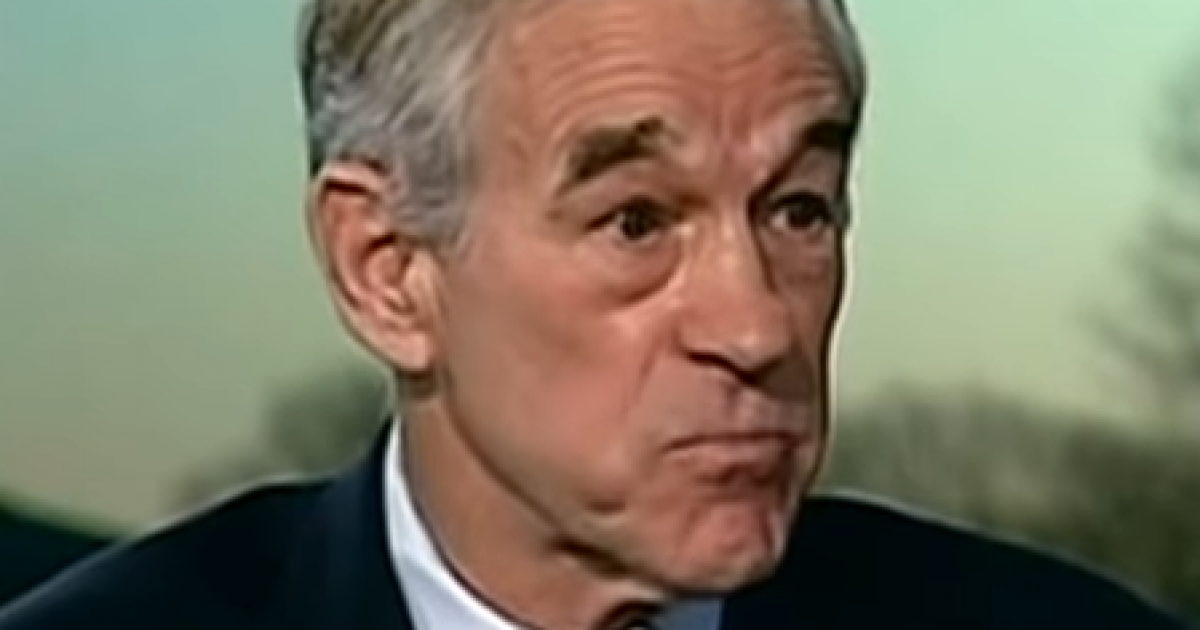
Former Congressman Ron Paul recently released a piece where he asserted that the Federal Reserve is more dangerous than the Wuhan virus.
He was specifically referencing the Fed’s recent announcement to keep interest rates “at or near zero until the economy recovers from the government-imposed shutdown.”
At the time, Fed Chairman Jerome Powell urged Congress and the Trump administration to completely discard any concerns about the deficit and “spend whatever it takes to stimulate the economy and combat coronavirus.”
Paul reminds us that the Fed “previously announced it would make unlimited purchases of Treasury securities, thus encouraging Congress and the president to increase spending and debt.”
As Congress demands more spending programs and the Trump administration is willing to comply with such demands, a scary alliance is being formed between Congress and the Fed. They both agree with easy money and big spending and operate symbiotically to undermine Americans’ economic livelihoods while enriching themselves and special interest groups.
Paul provided an overview of some of the Fed’s boldest actions:
Increasing the purchase of federal debt is not the only action the Fed has taken in a desperate attempt to keep the economy afloat. Since the coronavirus lockdowns began in early March, the Fed has greatly expanded its balance sheet. The Federal Reserve has also launched an unprecedented program to “loan” money directly to businesses.
The Wuhan virus has created massive instability throughout America and the rest of the globe. However, the former congressman noted that there were already numerous structural problems with the American economy before the virus struck:
The economy was teetering on the brink of a recession months before anyone heard of coronavirus. Last September, a panicked Fed began emergency infusions of cash into the repurchasing market, which is where banks make short-term loans to each other. The Fed’s balance sheet expansion also began in September. The Fed was also pushing interest rates down before the coronavirus panic, and it will likely keep rates at or even below zero long after the crisis related to the shutdown subsides.
In an environment where there’s economic malaise and low or negative interest rates, there is very little incentive to save. Paul correctly points out that the low interest rate policy “depletes the supply of private capital available to invest in businesses and jobs. The lack of private capital will put pressure on the Federal Reserve to maintain, and even expand, its new lending programs indefinitely.”
The Fed is trying to position itself as a hero of sorts, but it’s actually making matters worse every time it intervenes. Paul asserts that “Each of the Federal Reserve’s responses to the coronavirus shutdown increases the distortions of the market caused by the Federal Reserve’s meddling with the money supply and interest rates. These increased distortions guarantee the inevitable crash will be much more severe than the current downturn.”
In this Fed-induced monetary intervention, Paul does see a silver lining. He believes that “the next meltdown will likely lead to the end of the fiat money system and thus the end of the welfare-warfare state.”
In his concluding remarks, Paul offers some tough proposals for Congress to take on:
The only way to minimize the coming crisis is to begin immediately unwinding the current system. The first step is to end the lockdown and let businesses reopen and people go back to work. Congress must then begin challenging monetary policy by passing the Audit the Fed bill. Congress should also cut spending, starting with ending our hyper-interventionist foreign policy and bringing the troops home. Ending the welfare-warfare state and the fiat money system may cause some short-term pain, but that pain will be dwarfed by the long-term gains in liberty, peace, and prosperity.
All of Paul’s demands are great.
Unfortunately, D.C. may just be too drunk with power to even consider them.
It will likely take an economic catastrophe for use to see any meaningful change in economic policy in America. No one said that the road to limiting government would be pretty.



